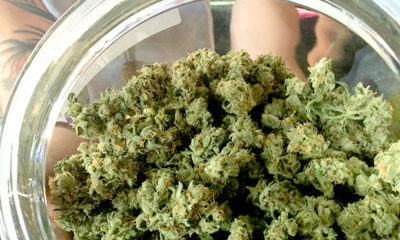
Medical
Why You Should Tell Your Doctor If You Smoke Cannabis
A new study suggests that you shouldn’t lie to your doctor when they ask if you use cannabis.
Your doctor is not the police. Neither is your doctor there to police your behavior. So, you should be honest with your doctor about smoking weed.
Why? As Kaiser Health News reported last week, it could save your life — or at least make surgery and post-surgery recovery much smoother.
When it comes to cannabis, medical professionals’ ignorance of cannabis generally and of its medical benefits is a well-documented problem. (For this, you can in large part blame medical schools.) Yet the risk of being honest with your doctor is low. There is a good chance your physician will hear the words “I smoke weed” and, at worse, shrug and move onto the next question. (This happened to me, last week, when I underwent a physical at a major university’s health center, in a state where adult-use cannabis is not legal.)
However, the reward for honesty is immense, unless you like waking up in the middle of surgery.
As KHN reported, surgery theaters in Colorado — where adults report using cannabis at almost double the national rate, 17% to 9% — are discovering that cannabis users need “more than triple the amount” of common sedation drug propofol in order to “go under” during a procedure. Giving a patient a double or triple dose of the stuff that helped kill Michael Jackson is not necessarily a winning solution. More of that stuff can lower blood pressure or lessen heart function.
But there’s another potentially mortal risk for weed smokers in a medical setting.
Cannabis users are also in a peculiar position to be over-prescribed opioids.
Since most hospitals don’t tolerate cannabis use of any kind — the mind-blowing incident in which a Missouri hospital called the police on a Stage IV cancer patient whom they thought had marijuana, but didn’t, is an extreme scenario that nonetheless represents the typical “no weed” mindset — the standard protocol for cannabis users is to not use weed when in post-op recovery. This means they will feel more pain and they will be prescribed more opioids, pain specialists told KHN, a finding backed up by a recent study.
“The hypothesis is that chronic marijuana users develop a tolerance to pain medications, and since they do not receive marijuana while in the hospital, they require a higher replacement dose of opioids,” Dr. David Bar-Or, the director of trauma research at Swedish Medical Center in Englewood, Colorado, told KHN.
Bar-Or is examining whether dronabinol, the synthetic THC substitute that not many cannabis patients seem to like, might be an effective substitute while in a clinical setting.
Everyone appears to be studying or at least unsure about the safe intersection of cannabis use and mainstream medical attention. Mark Steven Wallace, a physician and department chair of pain medicine at the University of California-San Diego is currently working on a study examining whether cannabis might be of use as a replacement for opioids in patients suffering from pain. One thing’s for sure — if the doctors don’t know because you don’t tell them, they won’t have enough data to tell you what’s safe and proper at any time, now or in the future.
“We really don’t want patients to feel like there’s stigma,” said Linda Stone, a North Carolina-based nurse anesthetist, in the KHN report. “They really do need to divulge that information. We are just trying to make sure that we provide the safest care.”
Think about it one last way: as positive behavior modeling. If even recalcitrant doctors see a parade of healthy and functional cannabis users in their offices — users who are upfront and casual about their reasonable and responsible habits — it could change their minds and remove whatever stigma is left.
TELL US, are you honest with your doctor about smoking weed?























